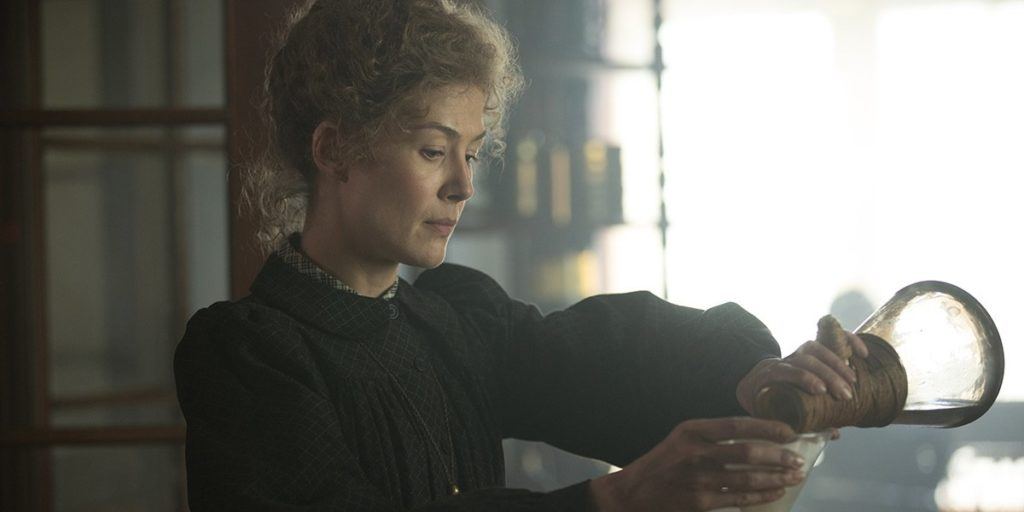Radioactive

Rosamund Pike stars in RADIOACTIVE. (Photo: Amazon Studios)
Marie Curie, who helped to discover radium, described it to her students at the Sorbonne as “a most peculiar and remarkable element because it does not behave as it should.”
You might say the same thing about Radioactive, an uneven biopic from director Marjane Satrapi (The Voices) that struggles to find the right formula while exploring the pioneering female scientist’s breakthroughs and discoveries.
Rather than radioactivity, the film’s energy comes from committed performance by Rosamund Pike as the two-time Nobel Prize winner and one of the most recognized physicists in history, whose personal life was tumultuous behind the scenes.
As the film opens, Marie is a Polish immigrant living in Paris in the 1890s trying to find her place as a student researcher in a male-dominated profession.
There she meets a physicist, Pierre Curie (Sam Riley), who finds her sharp intellect and feisty independence alluring. As he discovers the softer side behind her bitter cynicism, their supportive and collaborative relationship forms the emotional backbone of the film. It also yields the discovery of elements polonium and radium, the latter of which provides the basis for radioactivity (and eventually atomic energy).
After a tragedy tears the Curies apart, Marie soldiers on and seems to relish the constant struggle for acceptance, both internally and externally. She remains dedicated to her work, even in the face of scandal and negative feedback, by promoting the role of radiology in treating injured soldiers during World War I.
Pike (A Private War) fully immerses herself into the role, capturing the fiercely independent spirit of a woman whose outspoken feminism within the scientific community — where her arrogance and selfishness occasionally overshadowed her accomplishments — masks deep-rooted insecurities. She’s a defiant atheist and deathly afraid of hospitals, for example.
The screenplay jumbles the chronology of its true-life events, which gives the film an episodic structure. Perhaps that’s intended to make the science more exciting or avoid the trappings of a stuffy period piece, but it tends to reduce Curie’s life to a series of snippets.
We rarely get a sense of the hard work in the lab or the mathematical brilliance behind Marie’s legendary advancements. In its effort to shine a spotlight on a deserving subject, Radioactive hits the bullet points yet rarely probes Marie’s complex and troubled mind with the depth it deserves.
Rated PG-13, 109 minutes.